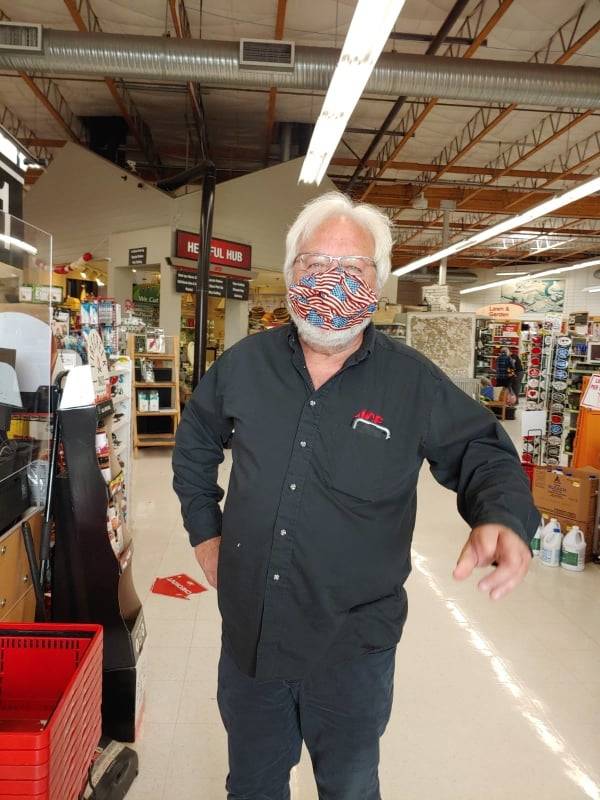A Freeland woman who started out with the intention of keeping her neighbors safe from COVID-19 expanded her coverage to the whole of Whidbey, and all over the country.
Since April 2020, Betty Lade has sewn over 2,300 masks.
While she acknowledged she wasn’t the only one to create masks in large-scale batches during the pandemic, Lade made all of the masks on her own without any additional assistance from other sewers.
“I wasn’t going to make them because I figured there were enough other people making them,” Lade said.
But after talking to her neighbor, Molly Carney, she found out there was a need, island-wide, for the protective coverings.
Carney encouraged Lade to start up her sewing machine.
“She gave me my first mask, and I gave several of my friends their first masks,” Carney said.
“It’s cats,” she said of the pattern of her first mask.
Lade wasn’t sure where to distribute the masks, so Carney took on that role.
“I sort of became her middle man, so to speak,” Carney said. “She would make a batch of masks and leave them on my front porch and I’d distribute them. Occasionally people would make a small donation and help offset the expense for her.”
Carney also connected with some employees of local businesses who she knew were suffering from lack of masks. Spring Roehm, another South Whidbey resident, helped Carney hand out the face coverings to people living on the streets.
Despite never having met Lade, Roehm expressed appreciation for the mask-maker.
“I don’t know who she is, but I have nothing but love and gratitude for her,” Roehm said.
Lade allowed businesses to sell some of the masks at a price that would allow them some extra income. Others were handed out at random, like the time Carney walked up and down the line at the ferry offering free masks.
Lade’s masks have made it to the farthest corners of the U.S., including Hawaii and New York. Carney said she has friends and family members living in different states who she sent masks to.
The masks are pleated, double-layered and complete with elastic ear loopholes. Lade said she had plenty of fabric to work with, but finding prints appropriate for men and children was challenging. The loopholes were the most costly part of the project — at one time, she spent $100 on a shipment of the elastics.
She estimated that each mask took about 45 minutes to complete, from start to finish. She was able to do them in batches, but cutting out the pattern took the most time.
She watched several YouTube videos to learn the process, adjusting pattern size when needed to make them better fit different faces.
In the end, Lade was able to receive some reimbursement for the cost of her materials, but that was all she was seeking.
“I wasn’t expecting to make any money,” she said. “It was kind of crazy to me how they had taken off, because I wasn’t going to make them.”
Although she made her last mask in April 2021, Lade hasn’t completely ruled out returning to sewing them.
“I wonder if there’s going to be more need — although I know the masks are more readily available than what they were a year ago,” Lade said.
She added that she would be ready to jump back into action if it was needed.
“The demand has definitely tapered off, but we’ll see what happens with the delta variant,” Carney said.
In the meantime, Lade has turned her efforts towards sewing blankets for the Whidbey Blanket Makers, a charitable group of knitters and quilters who donate blankets to foster children and the homeless, among others.
“If there’s a need, I’d like to be able to give,” Lade said.



